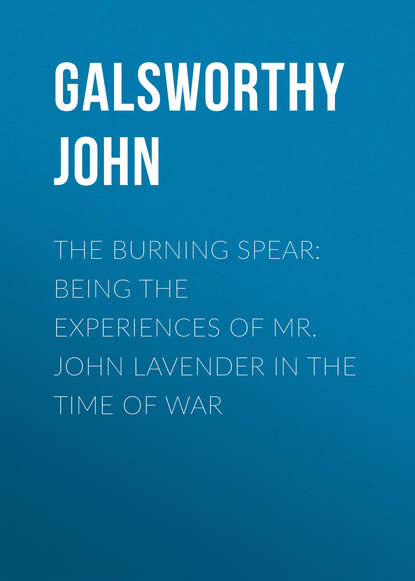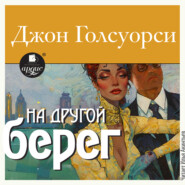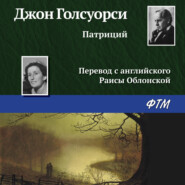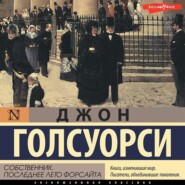По всем вопросам обращайтесь на: info@litportal.ru
(©) 2003-2024.
✖
The Burning Spear: Being the Experiences of Mr. John Lavender in the Time of War
Настройки чтения
Размер шрифта
Высота строк
Поля
Mr. Lavender’s heart was about to fail him when, conjuring up the vision of Aurora, he said in a faint voice: “I wish to see him professionally.” And, while the maid departed up the stairs, he waited in the narrow hall, alternately taking his hat off and putting it on again, so great was his spiritual confusion.
“Doctor will see you at once, sir.”
Putting his hat on hastily, Mr. Lavender followed her upstairs, feeling at his tooth to make quite sure that he remembered which it was. His courage mounted as he came nearer to his fate, and he marched into the room behind the maid holding his hat on firmly with one hand and his tooth in firmly with the other. There, beside a red velvet dentist’s chair, he saw a youngish man dressed in a white coat, with round eyes and a domestic face, who said in good English:
“What can I do for you, my dear sir? I fear you are in bain.”
“In great pain,” replied Mr. Lavender faintly, “in great pain.” And, indeed, he was; for the nervous crisis from which he was suffering had settled in the tooth, on which he still pressed a finger through his cheek.
“Sit down, sir, sit down,” said the young man, “and perhaps it would be better if you should remove your hat. We shall not hurd you – no, no, we shall not hurd you.”
At those words, which seemed to cast doubt on his courage, Mr. Lavender recovered all his presence of mind. He took off his hat, advanced resolutely to the chair, sat down in it, and, looking up, said:
“Do to me what you will; I shall not flinch, nor depart in any way from the behaviour of those whose duty it is to set an example to others.”
So saying, he removed his teeth, and placing them in a bowl on the little swinging table which he perceived on his left hand, he closed his eyes, put his finger in his mouth, and articulated:
“‘Ith one.”
“Excuse me, sir,” said the young German, “but do you wish a dooth oud?”
“‘At ish my deshire,” said Mr. Lavender, keeping his finger on his tooth, and his eyes closed. “‘At one.”
“I cannot give you gas without my anaesthedist.”
“I dow,” said Mr. Lavender; “be wick.”
And, feeling the little cold spy-glass begin to touch his gums, he clenched his hands and thought: “This is the moment to prove that I, too, can die for a good cause. If I am not man enough to bear for my country so small a woe I can never again look Aurora in the face.”
The voice of the young dentist dragged him rudely from the depth of his resignation.
“Excuse me, but which dooth did you say?”
Mr. Lavender again inserted his finger, and opened his eyes.
The dentist shook his head. “Imbossible,” he said; “that dooth is perfectly sound. The other two are rotten. But they do not ache?”
Mr. Lavender shook his head and repeated:
“At one.”
“You are my first client this week, sir,” said the young German calmly, “but I cannot that dooth dake out.”
At those words Mr. Lavender experienced a sensation as if his soul were creeping back up his legs; he spoke as it reached his stomach.
“Noc?” he said.
“No,” replied the young German. It is nod the dooth which causes you the bain.
Mr. Lavender, suddenly conscious that he had no pain, took his finger out.
“Sir,” he said, “I perceive that you are an honourable man. There is something sublime in your abnegation if, indeed, you have had no other client this week.
“No fear,” said the young German. “Haf I, Cicely?”
Mr. Lavender became conscious for the first time of a young woman leaning up against the wall, with a pair of tweezers in her hand.
“Take it out, Otto,” she said in a low voice, “if he wants it.”
“No no,” said Mr. Lavender sharply, resuming his teeth; “I would not for the world burden your conscience.”
“My clients are all batriots,” said the young dentist, “and my bractice is Kaput. We are in a bad way, sir,” he added, with a smile, “but we try to do the correct ting.”
Mr. Lavender saw the young woman move the tweezers in a manner which caused his blood to run a little cold.
“We must live,” he heard her say.
“Young madam,” he said, “I honour the impulse which makes you desire to extend your husband’s practice. Indeed, I perceive you both to be so honourable that I cannot but make you a confession. My tooth is indeed sound, though, since I have been pretending that it isn’t, it has caused me much discomfort. I came here largely to form an opinion of your husband’s character, with a view to securing his internment.”
At that word the two young people shrank together till they were standing side by side, staring at Mr Lavender with eyes full of anxiety and wonder. Their hands, which still held the implements of dentistry, insensibly sought each other.
“Be under no apprehension,” cried Mr. Lavender, much moved; “I can see that you are greatly attached, and even though your husband is a German, he is still a man, and I could never bring myself to separate him from you.”
“Who are you?” said the young woman in a frightened voice, putting her arm round her husband’s waist.
“Just a public man,” answered Mr. Lavender.
“I came here from a sense of duty; nothing more, assure you.”
“Who put you up to it?”
“That,” said Mr. Lavender, bowing as best he could from the angle he was in, “I am not at liberty to disclose. But, believe me, you have nothing to fear from this visit; I shall never do anything to distress a woman. And please charge me as if the tooth had been extracted.”
The young German smiled, and shook his head.
“Sir,” he said, “I am grateful to you for coming, for it shows us what danger we are in. The hardest ting to bear has been the uncertainty of our bosition, and the feeling that our friends were working behind our backs. Now we know that this is so we shall vordify our souls to bear the worst. But, tell me,” he went on, “when you came here, surely you must have subbosed that to tear me away from my wife would be very bainful to her and to myself. You say now you never could do that, how was it, then, you came?”
“Ah, sir!” cried Mr. Lavender, running his hands through his hair and staring at the ceiling, “I feared this might seem inconsistent to your logical German mind. But there are many things we public men would never do if we could see them being done. Fortunately, as a rule we cannot. Believe me, when I leave you I shall do my best to save you from a fate which I perceive to be unnecessary.”
So saying, he rose from the chair, and, picking up his hat, backed towards the door.
“I will not offer you my hand,” he said, “for I am acutely conscious that my position is neither dignified nor decent. I owe you a tooth that I shall not readily forget. Good-bye!”
XV
And backing through the doorway he made his way down the stairs and out into the street, still emotionalized by the picture of the two young people holding each other by the waist. He had not, however, gone far before reason resumed its sway, and he began to see that the red velvet chair in which he had been sitting was in reality a wireless apparatus reaching to Berlin, or at least concealed a charge of dynamite to blow up some King or Prime Minister; and that the looking-glasses, of which he had noticed two at least, were surely used for signalling to Gothas or Zeppelins. This plunged him into a confusion so poignant that, rather by accident than design, he found himself again at Hampstead instead of at Scotland Yard. “In the society of Aurora alone,” he thought, “can I free myself from the goadings of conscience, for it was she who sent me on that errand.” And, instead of going in, he took up a position on his lawn whence he could attract her attention by waving his arms. He had been doing this for some time, to the delight of Blink, who thought it a new game, before he saw her in her nurse’s dress coming out of a French-window with her yellow book in her hand. Redoubling his efforts till he had arrested her attention, he went up to the privet hedge, and said, in a deep and melancholy voice:
“Aurora, I have failed in my duty, and the errand on which you sent me is unfulfilled. Mrs. Pullbody’s sister’s husband’s sister’s husband is still, largely speaking, at large.”
“Doctor will see you at once, sir.”
Putting his hat on hastily, Mr. Lavender followed her upstairs, feeling at his tooth to make quite sure that he remembered which it was. His courage mounted as he came nearer to his fate, and he marched into the room behind the maid holding his hat on firmly with one hand and his tooth in firmly with the other. There, beside a red velvet dentist’s chair, he saw a youngish man dressed in a white coat, with round eyes and a domestic face, who said in good English:
“What can I do for you, my dear sir? I fear you are in bain.”
“In great pain,” replied Mr. Lavender faintly, “in great pain.” And, indeed, he was; for the nervous crisis from which he was suffering had settled in the tooth, on which he still pressed a finger through his cheek.
“Sit down, sir, sit down,” said the young man, “and perhaps it would be better if you should remove your hat. We shall not hurd you – no, no, we shall not hurd you.”
At those words, which seemed to cast doubt on his courage, Mr. Lavender recovered all his presence of mind. He took off his hat, advanced resolutely to the chair, sat down in it, and, looking up, said:
“Do to me what you will; I shall not flinch, nor depart in any way from the behaviour of those whose duty it is to set an example to others.”
So saying, he removed his teeth, and placing them in a bowl on the little swinging table which he perceived on his left hand, he closed his eyes, put his finger in his mouth, and articulated:
“‘Ith one.”
“Excuse me, sir,” said the young German, “but do you wish a dooth oud?”
“‘At ish my deshire,” said Mr. Lavender, keeping his finger on his tooth, and his eyes closed. “‘At one.”
“I cannot give you gas without my anaesthedist.”
“I dow,” said Mr. Lavender; “be wick.”
And, feeling the little cold spy-glass begin to touch his gums, he clenched his hands and thought: “This is the moment to prove that I, too, can die for a good cause. If I am not man enough to bear for my country so small a woe I can never again look Aurora in the face.”
The voice of the young dentist dragged him rudely from the depth of his resignation.
“Excuse me, but which dooth did you say?”
Mr. Lavender again inserted his finger, and opened his eyes.
The dentist shook his head. “Imbossible,” he said; “that dooth is perfectly sound. The other two are rotten. But they do not ache?”
Mr. Lavender shook his head and repeated:
“At one.”
“You are my first client this week, sir,” said the young German calmly, “but I cannot that dooth dake out.”
At those words Mr. Lavender experienced a sensation as if his soul were creeping back up his legs; he spoke as it reached his stomach.
“Noc?” he said.
“No,” replied the young German. It is nod the dooth which causes you the bain.
Mr. Lavender, suddenly conscious that he had no pain, took his finger out.
“Sir,” he said, “I perceive that you are an honourable man. There is something sublime in your abnegation if, indeed, you have had no other client this week.
“No fear,” said the young German. “Haf I, Cicely?”
Mr. Lavender became conscious for the first time of a young woman leaning up against the wall, with a pair of tweezers in her hand.
“Take it out, Otto,” she said in a low voice, “if he wants it.”
“No no,” said Mr. Lavender sharply, resuming his teeth; “I would not for the world burden your conscience.”
“My clients are all batriots,” said the young dentist, “and my bractice is Kaput. We are in a bad way, sir,” he added, with a smile, “but we try to do the correct ting.”
Mr. Lavender saw the young woman move the tweezers in a manner which caused his blood to run a little cold.
“We must live,” he heard her say.
“Young madam,” he said, “I honour the impulse which makes you desire to extend your husband’s practice. Indeed, I perceive you both to be so honourable that I cannot but make you a confession. My tooth is indeed sound, though, since I have been pretending that it isn’t, it has caused me much discomfort. I came here largely to form an opinion of your husband’s character, with a view to securing his internment.”
At that word the two young people shrank together till they were standing side by side, staring at Mr Lavender with eyes full of anxiety and wonder. Their hands, which still held the implements of dentistry, insensibly sought each other.
“Be under no apprehension,” cried Mr. Lavender, much moved; “I can see that you are greatly attached, and even though your husband is a German, he is still a man, and I could never bring myself to separate him from you.”
“Who are you?” said the young woman in a frightened voice, putting her arm round her husband’s waist.
“Just a public man,” answered Mr. Lavender.
“I came here from a sense of duty; nothing more, assure you.”
“Who put you up to it?”
“That,” said Mr. Lavender, bowing as best he could from the angle he was in, “I am not at liberty to disclose. But, believe me, you have nothing to fear from this visit; I shall never do anything to distress a woman. And please charge me as if the tooth had been extracted.”
The young German smiled, and shook his head.
“Sir,” he said, “I am grateful to you for coming, for it shows us what danger we are in. The hardest ting to bear has been the uncertainty of our bosition, and the feeling that our friends were working behind our backs. Now we know that this is so we shall vordify our souls to bear the worst. But, tell me,” he went on, “when you came here, surely you must have subbosed that to tear me away from my wife would be very bainful to her and to myself. You say now you never could do that, how was it, then, you came?”
“Ah, sir!” cried Mr. Lavender, running his hands through his hair and staring at the ceiling, “I feared this might seem inconsistent to your logical German mind. But there are many things we public men would never do if we could see them being done. Fortunately, as a rule we cannot. Believe me, when I leave you I shall do my best to save you from a fate which I perceive to be unnecessary.”
So saying, he rose from the chair, and, picking up his hat, backed towards the door.
“I will not offer you my hand,” he said, “for I am acutely conscious that my position is neither dignified nor decent. I owe you a tooth that I shall not readily forget. Good-bye!”
XV
And backing through the doorway he made his way down the stairs and out into the street, still emotionalized by the picture of the two young people holding each other by the waist. He had not, however, gone far before reason resumed its sway, and he began to see that the red velvet chair in which he had been sitting was in reality a wireless apparatus reaching to Berlin, or at least concealed a charge of dynamite to blow up some King or Prime Minister; and that the looking-glasses, of which he had noticed two at least, were surely used for signalling to Gothas or Zeppelins. This plunged him into a confusion so poignant that, rather by accident than design, he found himself again at Hampstead instead of at Scotland Yard. “In the society of Aurora alone,” he thought, “can I free myself from the goadings of conscience, for it was she who sent me on that errand.” And, instead of going in, he took up a position on his lawn whence he could attract her attention by waving his arms. He had been doing this for some time, to the delight of Blink, who thought it a new game, before he saw her in her nurse’s dress coming out of a French-window with her yellow book in her hand. Redoubling his efforts till he had arrested her attention, he went up to the privet hedge, and said, in a deep and melancholy voice:
“Aurora, I have failed in my duty, and the errand on which you sent me is unfulfilled. Mrs. Pullbody’s sister’s husband’s sister’s husband is still, largely speaking, at large.”

















